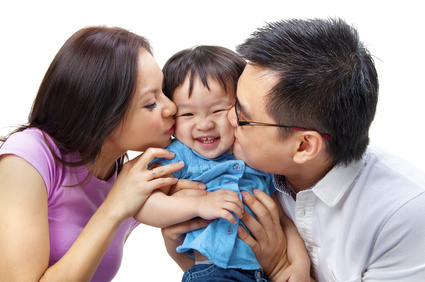01/04/2012

The importance of Endings and Goodbyes
Goodbyes are an important ritual in our culture for a good reason. They signify that something has come to an end and that it is time for something new to happen. Even when the new event is fun or exciting, this transition itself can be difficult, especially for young children, and it is often important to acknowledge this with them.
None of us really like goodbyes but an ability to tolerate endings is a very important part of life because life is full of endings and new beginnings. Tolerating endings helps us:
- Cope with the natural transitions in life: changing school, leaving home, moving house, leaving jobs, your own children leaving.
- See things through and not run away when they’re going wrong.
- Feel OK when you are alone rather than feeling that you have been abandoned or left out of things.
Having numerous good experiences of goodbyes and endings not being “the end of the world” puts children in good stead to develop the skills above.
Small Goodbyes
The most important goodbye for children is when separating from their primary carer, as this holds the greatest significance. For this reason it is important not to leave your child without saying goodbye, even in familiar settings or with familiar people. Even if this leads to resistance to begin with, it is important to be consistent with this. Many parents feel that young children will not notice they have gone and by the time they realize, they will be having so much fun that they won’t mind. Although this sometimes seems to be the case, your child will also get the message that people can simply disappear without warning at any time. This can eventually lead to much clingier behaviour or other forms of anxiety. For example, even in situations where the parent has no intension of leaving, a child might not join in the fun for fear that the parent may slip-away if they are not hanging on to them.
Saying a proper Goodbye:
- Helps children feel contained: It is human nature to prefer to know where you stand (even if you don’t like it) rather than feel tricked into something.
- Helps children to trust you: If you stay when you say you are staying, but also tell them clearly whenever you are leaving.
- Gives them a consistent and confident message from you that they will be OK for a short time without you (while acknowledging that it is hard to begin with) which gives your child a sense of their own competence.
Bigger Goodbyes
Ensuring that children have a proper goodbye in relation to the bigger things is also very important. For example, moving areas, school, countries, or other major separations (perhaps from a nanny, aupair or friends moving away) need to be acknowledged. Again, parents often feel that it will upset children unnecessarily to have a formal goodbye and that they might not notice if it isn’t mentioned. Indeed, children may well get upset but again acknowledging the end of a relationship is important, even if it feels hard. Very young children won’t understand that a goodbye is a permanent one, but it is still important to let the goodbye take place. It can then be discussed (and any sadness acknowledged) whenever the child asks about the people involved in the future.
Settling your child Goodbyes & endings